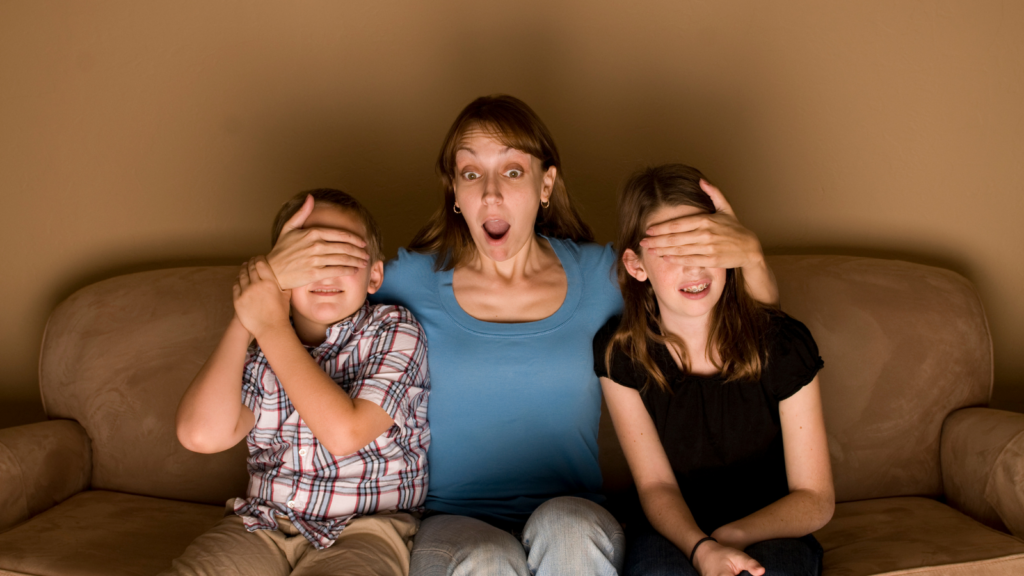In the vast, complex world of child-rearing, parental guidance stands as a pivotal cornerstone. It’s more than just a term; it’s a philosophy that shapes the future of our children. But what does ‘parental guidance’ truly mean? Let’s dive into the heart of this concept.
Parental guidance is a term that’s often thrown around, yet its profound implications are sometimes overlooked. It’s more than just setting rules or providing advice. It’s about nurturing, shaping, and guiding a child’s journey through life. This article aims to shed light on the essence of parental guidance, its importance, and how it impacts a child’s development.
Parental Guidance Definition
The Role of Parental Guidance/ Understanding the Parental Guidance Definition
 Parental guidance centers on the responsibility of adults to steer their child or children’s growth. Parents, shaping behaviors, social skills, and moral values, set the trajectory for their offspring’s future.
Parental guidance centers on the responsibility of adults to steer their child or children’s growth. Parents, shaping behaviors, social skills, and moral values, set the trajectory for their offspring’s future.
Grasping the parental guidance definition is pivotal. Accurate comprehension equips parents with tools necessary for the child’s successful progression. It’s about more than supervision – understanding instills a strategic approach to parenting.
Different Forms of Parental Guidance
Parental guidance comes in many forms, adapting to the diverse aspects of a child’s life. Let’s delve deeper into what these forms might look like.
Emotional / Moral Guidance
 Emotionally guiding a child equips them with tools for managing feelings effectively. Parents, as role models, demonstrate appropriate expression and regulation of emotions, be it joy, excitement, sadness, or frustration. For example, they teach a child to channel anger constructively, instead of throwing tantrums.
Emotionally guiding a child equips them with tools for managing feelings effectively. Parents, as role models, demonstrate appropriate expression and regulation of emotions, be it joy, excitement, sadness, or frustration. For example, they teach a child to channel anger constructively, instead of throwing tantrums.
Moral and Ethical guidance shapes a child’s values and beliefs. Parents exhibit right from wrong, instilling principles of honesty, responsibility, and respect. They demonstrate, for instance, the importance of truth-telling and the consequences of dishonesty, laying foundations for ethical decision-making.
Academic and Career Guidance
Academic and Career guidance boosts a child’s educational pursuit and future prospects. Parents support studies, foster a culture of learning, and provide insight into career choices. They might, for example, tutor in a tough subject or share personal job experiences to illuminate potential career paths.
How Parental Guidance Impacts Child Development
Parental guidance profoundly influences every aspect of a child’s development. The ensuing discussion zeroes in on the impact on social behavior, emotional intelligence, and future decision-making abilities.
Influence on Social Behavior
Parental guidance shapes social behaviors in children. Through guidance, parents model appropriate actions and reactions, steering children towards meaningful and productive social interactions. For instance, a parent demonstrating empathy encourages the same behavior in the child.
Effect on Emotional Intelligence
The development of emotional intelligence in children is largely influenced by parental guidance. It’s parents who first mirror and validate children’s feelings, resulting in feedback that helps them understand and manage their emotions. An example may be a mother comforting her crying child, thereby instilling a sense of emotional security.
Impact on Future Decision Making
Moulding future decision-making skills of a child hinges on effective parental guidance. Parents who share the process and rationale behind their decisions teach children how to make informed choices. For instance, a father discussing his choice of groceries can subtly influence his child’s future decision-making capabilities.
The Evolution of Parental Guidance
Changes in Parental Guidance Over Time
 Parental guidance has seen notable shifts over the years. Early societies leaned towards the authoritarian style of parenting, as detailed in a 1950s sociological report. The report pointed to direct instruction and discipline. However, the 21st century witnessed a paradigm shift. Modern guidance tends to incorporate democratic parenting, as a 2019 psychology study notes. The study emphasized open communication, negotiation, and inclusive decision-making.
Parental guidance has seen notable shifts over the years. Early societies leaned towards the authoritarian style of parenting, as detailed in a 1950s sociological report. The report pointed to direct instruction and discipline. However, the 21st century witnessed a paradigm shift. Modern guidance tends to incorporate democratic parenting, as a 2019 psychology study notes. The study emphasized open communication, negotiation, and inclusive decision-making.
Moving ahead, the trend of parental guidance appears to incline towards creating emotionally intelligent children. A 2025 forecast by FutureOfParenting.org anticipates a significant rise in conscious parenting. It’s a practice that emphasizes awareness, empathy and responsive connection between the parent and the child. Assertions from such trusted sources suggest that future parenting will highly value emotional maturity and resilience.
A Critical Element in Child Raring
Parental guidance isn’t just a buzzword. It’s a critical element in child-rearing that shapes a child’s behavior, social skills, and moral values. Whether it’s emotional, moral, or academic guidance, its influence on social behavior and cognitive skills is undeniable. The article has shown how our understanding and practice of parental guidance have evolved over time. We’ve moved from authoritarian to democratic parenting styles, and the future looks set to focus on fostering emotional intelligence in children.



